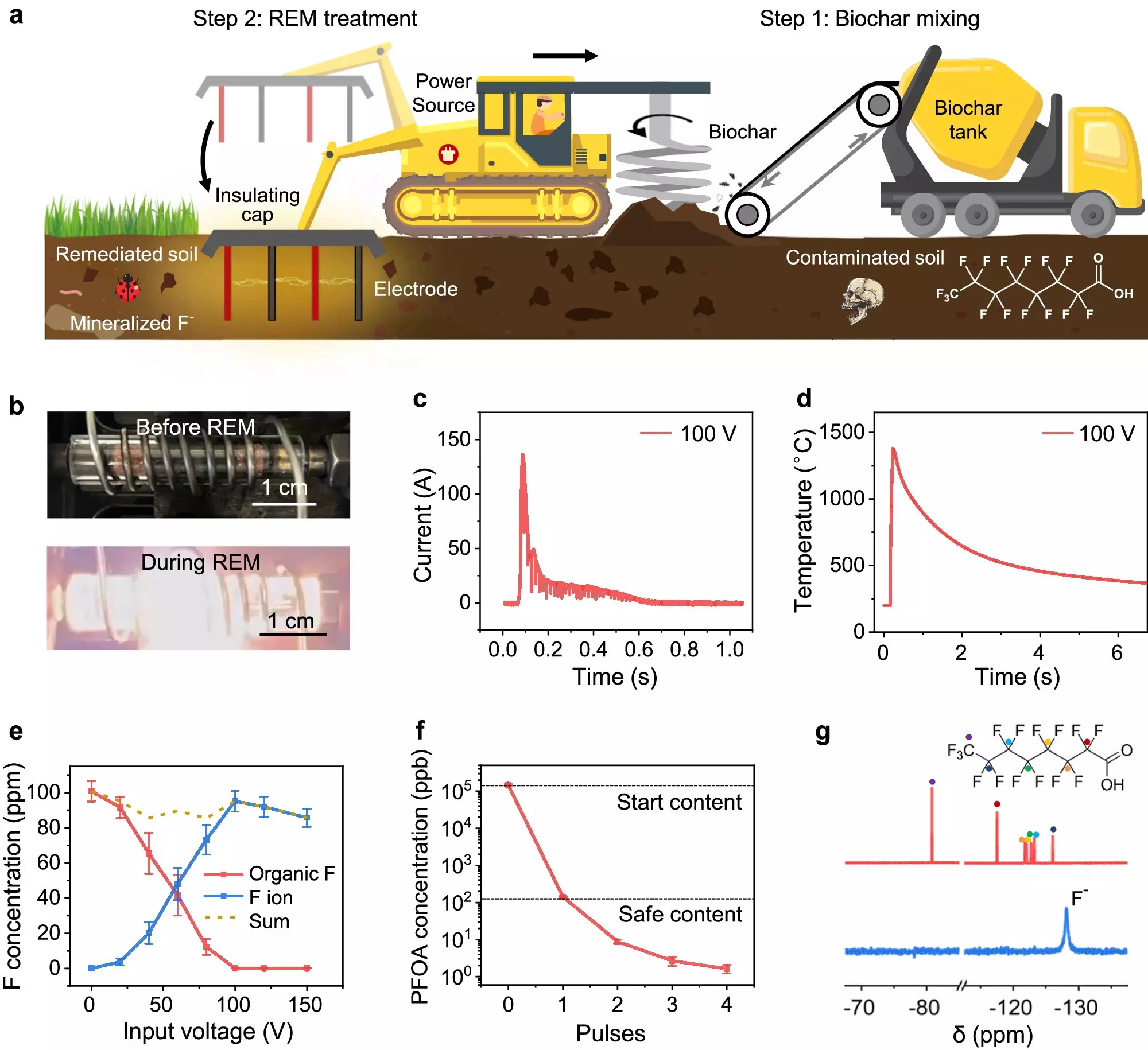Traditional methods of remediation for synthetic chemicals accumulation in soil have often been inefficient and energy-consuming. The accumulation of per- and polyfluoroalkyl substances (PFAS) poses a significant threat to environmental and human health due to their persistence and bioaccumulative properties. These chemicals, commonly found in consumer products, are resistant to degradation methods, making it challenging to eliminate them from the environment.
The rapid electrothermal mineralization (REM) process, developed by a research team led by Rice University chemist James Tour, offers a groundbreaking solution to the remediation of PFAS-contaminated soil. By utilizing electrical inserts in the ground and biochar, an environmentally friendly conductive additive, the REM process can rapidly heat contaminated soil to high temperatures in seconds through a direct current pulse. This intense heat converts PFAS into nontoxic calcium fluoride, utilizing the natural calcium compounds present in the soil.
The REM process has shown exceptional removal efficiencies of more than 99% and mineralization ratios of more than 90%. This high-temperature electrothermal process effectively mineralizes PFAS into harmless minerals, demonstrating its potential for efficient soil remediation. Additionally, the process retains essential soil properties, enhances soil health by increasing nutrient supply, and supports the infiltration of arthropods, contributing to ecosystem balance.
The REM process stands out for its speed, efficiency, scalability, and environmental benefits. Compared to existing remediation practices, the REM method reduces energy consumption, greenhouse gas emissions, and water use significantly. The lab-scale process can handle up to 2 kilograms of soil per batch, paving the way for larger-scale, on-site application systems that are currently in development. This innovative approach offers a more environmentally friendly and cost-effective solution to soil remediation efforts.
The Electrothermal Mineralization Process developed by James Tour and his research team at Rice University represents a significant advancement in the field of soil remediation. The REM process’s ability to rapidly and effectively mineralize PFAS contaminants in soil while maintaining soil health and environmental sustainability highlights its potential to revolutionize soil remediation practices. As further research and development are conducted, the REM process may become a key tool in addressing the challenges posed by synthetic chemical contamination in soil.


Leave a Reply